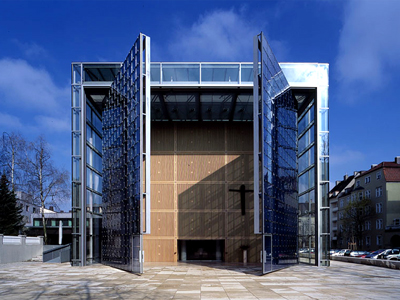
By ANDREW POWELL
Published: April 24, 2017
MUNICH — It was a short courtship by recent standards. Dalmatian conductor Ivan Repušić (pr. REP-oosh-itch), 39, debuted with the Münchner Rundfunk-Orchester in a concert La rondine in Oct. 2015, returned for a gala two months later and signed his contract* last June. His background, happily, is stable: general music director of Staatsoper Hannover, in a relationship dating back to 2010, and chief conductor since 2005 of the Zadarski Komorni Orkestar (by the sapphire waters of Dalmatia’s coast: no fool he).
Before stepping as Chefdirigent into Ulf Schirmer’s big shoes this fall, he agreed to fashion an MRO Paradisi gloria program March 17 here at the Herz-Jesu-Kirche: Respighi’s Concerto gregoriano (1921) and the Duruflé Requiem (1947) — not the most obvious repertory from which to judge a conductor but a thoughtful and satisfying journey unified around chant and modal harmonies.
Repušić built tension in both works, attending to dynamics and stressing the flow of ideas where he could. In the “concerto,” this produced a structure greater than the sum of three perilously disparate movements and gave his unassuming violin soloist, Henry Raudales, a basis for tracing the rhapsodic lines assertively as well as ethereally, even if the church space somewhat diffused the instrument’s sound.
In the Duruflé, it meant a bold performance grounded in lyrical contrasts and vying choral and orchestral assertions. The BR Chor served the divine rhetoric with verbal clarity and sure intonation. The MRO strings played passionately (for the concerto too), the brass gloriously. Max Hanft managed the demanding organ part with aplomb despite his equipment’s relatively muted colors. Mezzo-soprano Okka von der Damerau applied her magnificent voice to the Pie Jesu but, alas, conveyed little of its meaning. Ljubomir Puškarić’s firm and focused baritone, on the other hand, found a wealth of plaintive expression in his brief solo duties.
[*One downside of the haste is that he is not fully available for his debut season, as announced at a Pressekonferenz April 26 to formally introduce him. Only five Repušić concerts are slated in Munich for 2017–18: another gala, a family program of symphonic dances, a concert performance of Luisa Miller, and two Paradisi gloria programs. The church plans, in a series created by Marcello Viotti, continue the Respighi-Duruflé eclecticism: Britten’s A Ceremony of Carols and Variations on God Rest Ye Merry, Gentlemen, together with Vaughan Williams’s Tallis Fantasia and Bernstein’s Chichester Psalms; and a pairing of Kodály’s Psalmus hungaricus with his Budavári Te Deum, sung by the Hungarian Radio Choir, no less. Separately at the conference, the MRO’s new website was launched and we learned some trivia: the orchestra is 32% women; the longest service among active members is 41 years; the mean age is 44; and the oldest played instrument was made 312 years ago. Schirmer, absent, received a warm round of applause from the 100 or so assembled journalists for his eleven years of MRO work.]
Photo © Künstleragentur Seifert
Related posts:
With Viotti, MRO Looks Back
Gergiev, Munich’s Mistake
See-Through Lulu
Pintscher Conducts New Music
Antonini Works Alcina’s Magic
